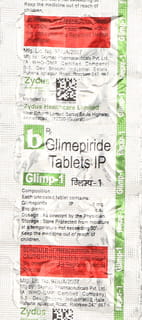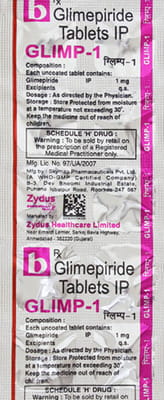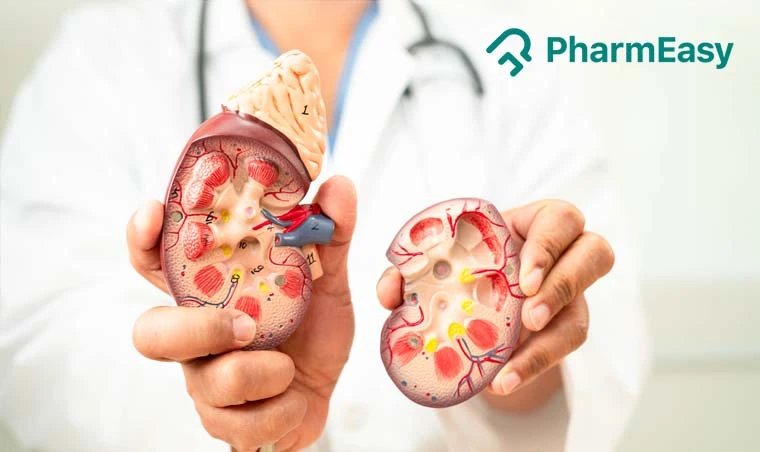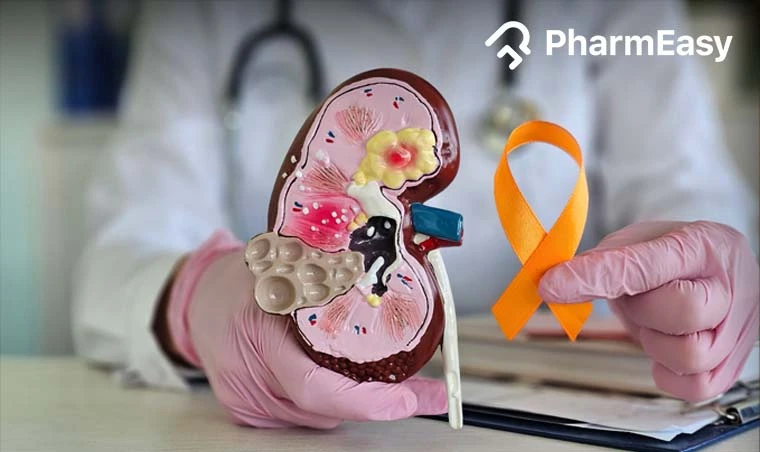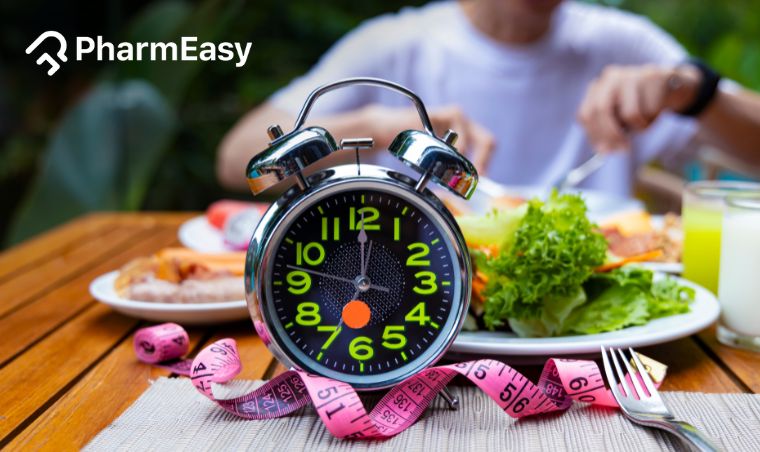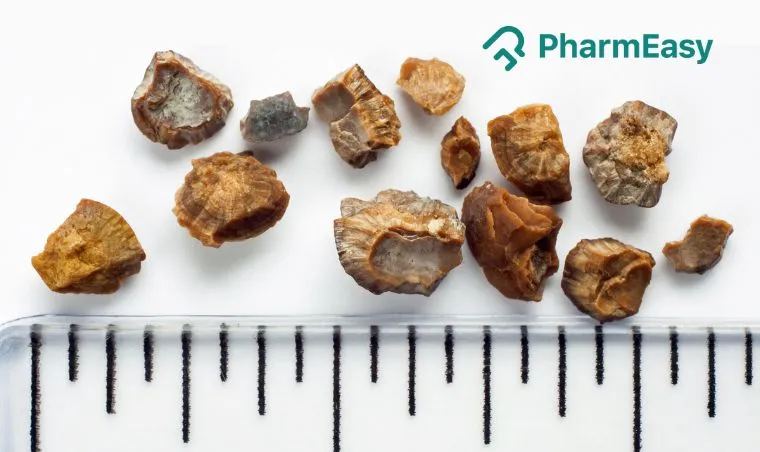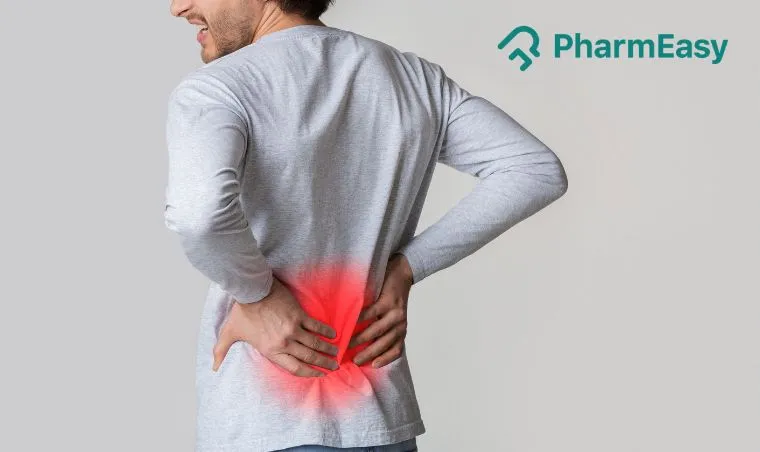Glimp 1mg Strip Of 10 Tablets
Description
Glimp 1 tablet helps control blood sugar levels in type 2 diabetes mellitus, especially when changes to your diet and exercise alone are not enough. Its active ingredient is glimepiride, which is a type of antidiabetic medication. This condition, type 2 diabetes, occurs when your body's cells do not respond normally to the hormone insulin, resulting in higher blood sugar levels. Uncontrolled high blood sugar can lead to serious long-term health problems.
By boosting insulin production, Glimp 1 tablet helps lower elevated blood sugar levels, thereby helping you maintain better glycemic control. It works by targeting the pancreas to encourage the release of a greater quantity of insulin into your bloodstream. Insulin's primary function is to regulate how your body utilizes sugar by facilitating its movement from the blood into the cells, where it is used as a source of energy. This medicine should be taken strictly as directed by your doctor, usually after a meal to help minimize potential side effects.
It is crucial that you adhere to the prescribed duration for taking this medicine. It is an ongoing treatment for a chronic condition, and you must not discontinue this medicine abruptly without consulting your doctor, even if your symptoms seem to improve. Common side effects you might experience include feelings of nausea, dizziness, headache, and weight gain. There is also a risk of low blood sugar, known as hypoglycaemia, which manifests as extreme hunger, shakiness, confusion, or reduced alertness. It is essential to discuss any persistent or concerning side effects with your doctor.
Product Summary
| Offer Price | ₹19.34 |
| You Save | ₹20.13 (51% on MRP) |
| Contains | Glimepiride(1.0 Mg) |
| Uses | Type-II Diabetes Mellitus |
| Side effects | Nausea, dizziness, headache, weight gain, hypoglycaemia |
| Therapy | ANTI-DIABETIC |
Uses
Contraindications
- If you have an allergy to glimepiride or sulfonylureas or sulfonamides or any other ingredients of Glimp 1 tablet.
- If you have type1 diabetes.
- If you have the following signs like fatigue, nausea, frequent urination and muscle stiffness (due to diabetic ketoacidosis).
- If you have kidney or liver disease.
Side effects
- Nausea
- Dizziness
- Headache
- Weight gain
- Hypoglycaemia
Precautions and Warnings
Pregnancy
Breast Feeding
Driving
- Glimp Tablet can cause low blood sugar levels, which can lead to drowsiness, unconsciousness, confusion. These can be dangerous while driving.
- Consult your doctor whether you can drive a car if you have frequent episodes of hypoglycaemia.
- Keep a juice or a bar of chocolate in the car close to you while driving and in case you start feeling any of the above symptoms of hypoglycaemia, immediately drink the juice or eat the chocolate bar. Note that artificial sweeteners are not of any use in such scenarios....
Alcohol
Other General Warnings
- You experience extreme hunger, headache, nausea, vomiting, sleepiness, restlessness, aggression, reduced alertness and reaction time, confusion, shakiness, dizziness. These could be signs of low blood sugar. If you have any of these, immediately have sugar or sweet juice....
- You are suffering from severe liver disease or kidney disease.
- You have G6PD deficiency, and Glimepiride can cause hemolytic anaemia (destruction of red blood cells).
Directions for Use
- Glimp 1 tablet should be taken as directed by your doctor. Swallow it whole with a glass of water. Do not cut, break or chew the medicine.
- It should be taken with or after a meal to reduce its side effects. It would be best if you took it at a fixed time for optimal results and not consume it more than that prescribed by your doctor.
Storage and disposal
- Store at room temperature in a original package
- Keep our of the reach of childrens and pets
Quick Tips
- Take this medicine exactly as prescribed by your doctor; do not stop on your own.
- Always swallow the tablet whole with water; do not cut, break, or chew it.
- Take Glimp 1 tablet with or immediately after a meal to minimize side effects.
- Take your dose at a consistent time each day for the best results.
- Be aware of signs of low blood sugar (hypoglycaemia) like shakiness, confusion, or extreme hunger.
- If you experience symptoms of low blood sugar, immediately consume sugar or sweet juice (artificial sweeteners will not work).
- Avoid consuming alcohol on an empty stomach, as it increases the risk of low blood sugar.
- Inform your doctor if you are pregnant, planning to conceive, or breastfeeding before starting or continuing this medicine.
- Be cautious while driving, as this medicine can cause low blood sugar, leading to drowsiness or confusion. Keep a sweet item readily accessible in your car.
- Store the medicine at room temperature in its original packaging, safely away from children and pets.
Dosage
Overdose
Missed a Dose
- If you missed any dose of Glimp 1 tablet, then take it as soon as you remember. If it is time for the next dose, then skip the missed dose and continue your regular dosing schedule. Do not take a double dose of medicine to compensate for a missed one....
Mode of Action
How Does It Work?
- Your pancreas produces a hormone called insulin. Insulin moves sugar (glucose) from the blood into the cells. The cells then use it as fuel for energy. In type 2 diabetes, your body doesn’t make enough insulin or doesn’t utilize insulin properly, so the sugar is not able to enter the cells and stays in your bloodstream....
- Glimepiride increases the amount of insulin released from your pancreas. This insulin then lowers your blood sugar levels.
Interactions
Interactions with other medicines
- Some medicines can affect the way Glimp 1 tablet works, or this medicine itself can reduce the effectiveness of other medicines taken at the same time.
- Tell your doctor about all the medicines, supplements, or herbals you are currently taking or might take to avoid any possible interaction.
- These medicines along with Glimp 1 tablet can cause a drastic fall in blood glucose levels: fluconazole, aspirin, antidiabetic medicines like metformin, insulin, warfarin, ramipril, lisinopril, allopurinol....
- These medicines can interfere with Glimp 1 tablet and cause an increase in blood glucose: oestrogens, progestogens, diuretics, levothyroxine, rifampicin, glucocorticoids, chlorpromazine.
Content Details
Dr. Nikita Toshi
BDS (Bachelor of Dental Surgery), WHO FIDES member
Dr. Ritu Budania
MBBS, MD (Pharmacology)
Frequently Asked Questions (FAQs)
Q: How long do I need to take Glimp Tablet?
Q: What are the side effects of Glimp Tablet?
Q: Can Glimp 1 tablet interact with other medicines I am taking?
Q: What should I do if I miss a dose of Glimp 1 tablet?
References
- Glimcip tablet [Internet]. CiplaMed. 2025 [cited 08th Oct 2025]
- AZULIX Tablet [Internet]. Torrentian.com. 2025 [cited 08th Oct 2025]
- Glimepiride 1 mg Tablets - Patient Information Leaflet (PIL) - (emc) [Internet]. Medicines.org.uk. 2025 [cited 08th Oct 2025]
- Glimepiride 1 mg Tablets - Summary of Product Characteristics (SmPC) - (emc) [Internet]. Medicines.org.uk. 2025 [cited 08th Oct 2025]
- CDSCO [Internet]. Cdscoonline.gov.in. 2025 [cited 08th Oct 2025]
Did you find this medicine information helpful?
Please rate your experience
